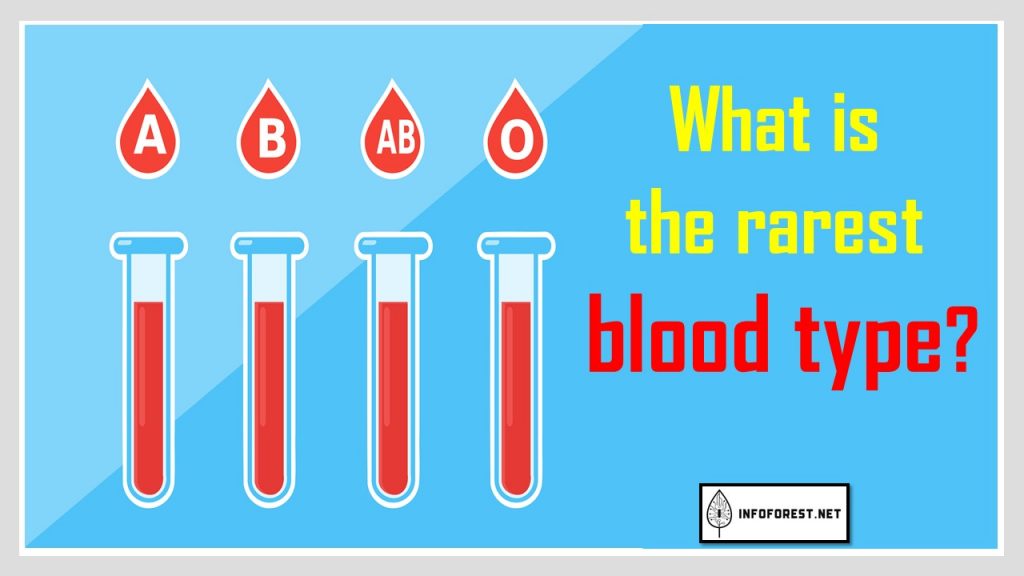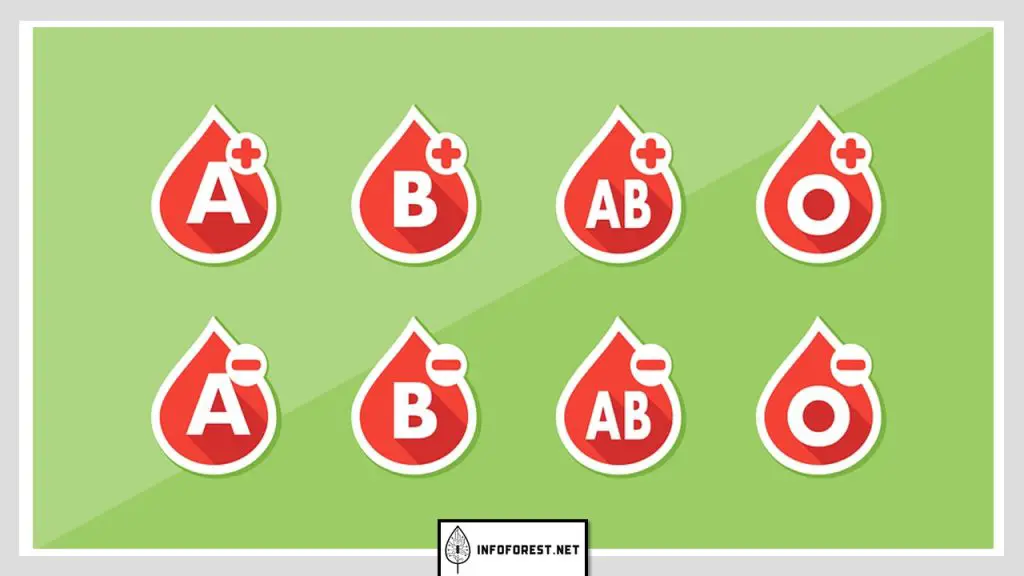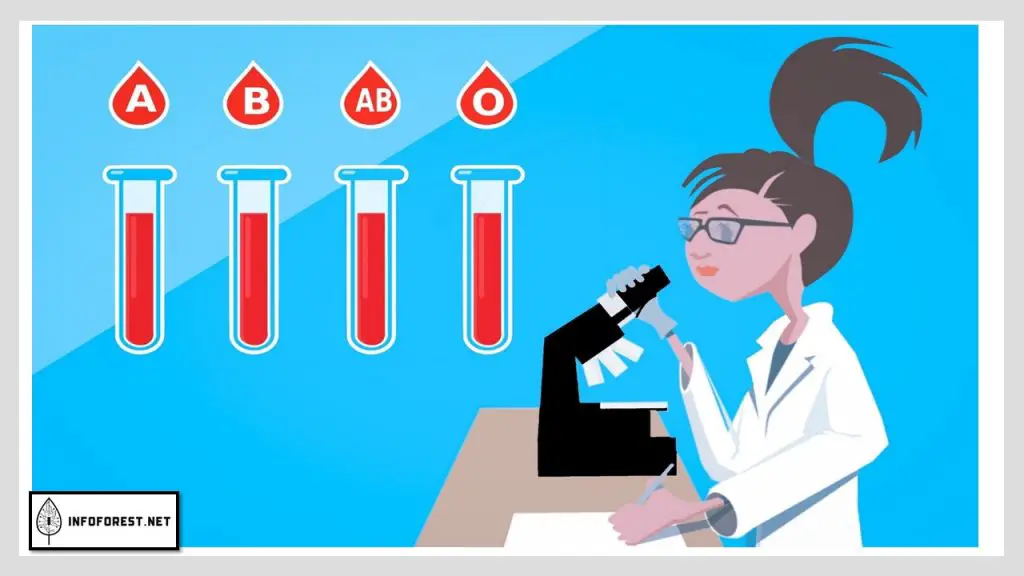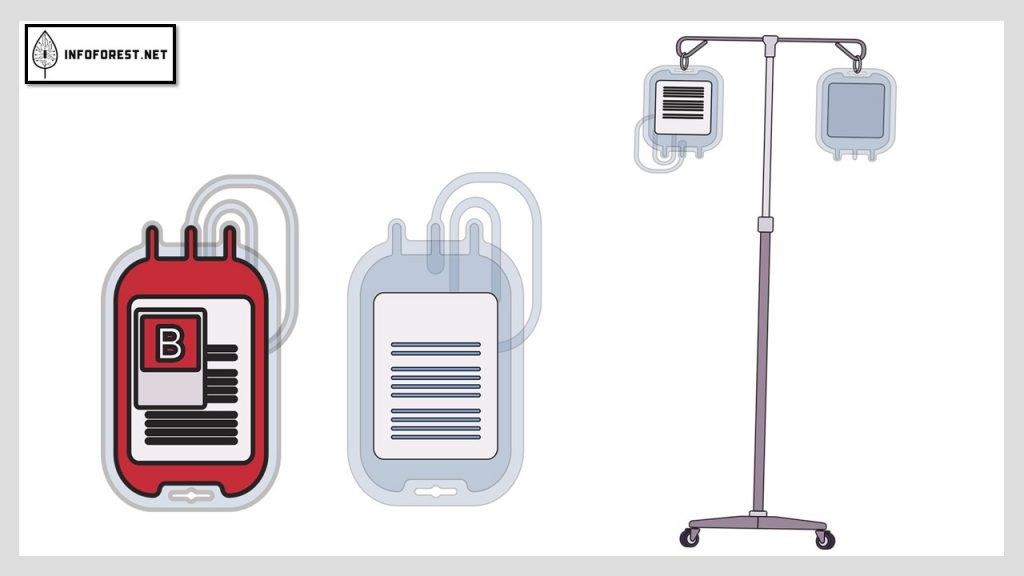
The rarest blood type is AB-. This blood type is often referred to as the “universal recipient” because people with this blood type can receive red blood cells from any blood type. However, AB- individuals can only donate to other AB- individuals, making it a rare blood type. The next rarest blood type is B-, followed by A-. O- is the most common blood type, followed by A+.
Universal blood type
Blood type is a classification of blood, based on the presence or absence of certain antigens on the surface of red blood cells. The most important blood group systems are ABO and the Rh system. There are four main blood types: A, B, AB, and O. Each blood type is characterized by the presence or absence of certain antigens on the surface of red blood cells. In addition to the ABO blood group, there is the Rh factor, which is a protein found on the surface of red blood cells. If a person has the Rh factor, their blood is Rh-positive. If a person does not have the Rh factor, their blood is Rh-negative.
ABO blood group:
- A: has A antigens on the surface of red blood cells and B antibodies in the plasma
- B: has B antigens on the surface of red blood cells and A antibodies in the plasma
- AB: has both A and B antigens on the surface of red blood cells and no A or B antibodies in the plasma
- O: has no A or B antigens on the surface of red blood cells, but has both A and B antibodies in the plasma
Rh factor:
- Rh+: has Rh factor on the surface of red blood cells
- Rh-: does not have Rh factor on the surface of red blood cells

Blood type chart
here is a table that provides information on the different blood types and their corresponding frequencies in the United States population:
| Blood Type | Frequency in the US Population |
|---|---|
| A+ | 34% |
| A- | 6% |
| B+ | 8% |
| B- | 2% |
| AB+ | 3% |
| AB- | 1% |
| O+ | 37% |
| O- | 7% |
It is important to note that the frequencies of blood types can vary significantly depending on the population being considered. For example, the frequencies of blood types may be different in different ethnic or racial groups.

Examples
here are a few examples for blood types:
- A patient who has undergone surgery may require a blood transfusion to replace lost blood. If the patient has blood type AB-, they can receive red blood cells from any blood type because the AB- blood type has no A or B antigens and can therefore accept red blood cells from any blood type.
- A pregnant woman with blood type AB- may require a blood transfusion if she develops anemia or experiences heavy bleeding during childbirth.
- A person with blood type AB- may be asked to donate blood to help meet the needs of patients who require transfusions. Because AB blood can be transfused to individuals with any blood type, it is often in high demand.
- A person with blood type AB- may need to be more cautious when receiving a blood transfusion, as they may be at a higher risk for developing an allergic reaction to certain blood products.
- A person with blood type AB- may need to take special precautions when traveling to certain parts of the world where certain blood types are more prevalent. For example, if they are traveling to a region where blood type O is more common, it may be more difficult to find compatible blood for transfusion.
Rarest blood type
The rarest blood type is AB-. This blood type is often referred to as the “universal recipient” because people with this blood type can receive red blood cells from any blood type. However, AB- individuals can only donate to other AB- individuals, making it a rare blood type.
The blood type of an individual is determined by the presence or absence of certain antigens on the surface of red blood cells. The most important blood group systems are ABO and the Rh system. The ABO system has four main blood types: A, B, AB, and O. Each blood type is characterized by the presence or absence of certain antigens on the surface of red blood cells. In addition to the ABO blood group, there is the Rh factor, which is a protein found on the surface of red blood cells. If a person has the Rh factor, their blood is Rh-positive. If a person does not have the Rh factor, their blood is Rh-negative.
Blood type AB- is a rare blood type because it is only produced when an individual inherits the A and B antigens from both parents but also inherits the negative Rh factor from one parent. This combination is rare because it requires that both parents are carriers of the A and B antigens, as well as the negative Rh factor.

In the United States, the frequency of blood type AB- is approximately 1% of the population. In comparison, the frequency of blood type O- is approximately 7% of the population, making it the most common blood type. Blood type A- is the second most common, with a frequency of approximately 6% of the population. Blood type B- has a frequency of approximately 2% of the population, and blood type AB+ has a frequency of approximately 3% of the population.
It is important to have a diverse blood supply to meet the needs of patients who require blood transfusions. Blood type AB- is often in high demand because it can be transfused to individuals with any blood type. However, because it is a rare blood type, it can be difficult to maintain a sufficient supply. It is important for people with rare blood types, such as AB-, to consider donating blood to help meet the needs of patients who may require transfusions.
Most Viewed Articles
Conclusion
In conclusion, blood type AB- is the rarest blood type, with a frequency of approximately 1% of the population in the United States. This blood type is often referred to as the “universal recipient” because individuals with this blood type can receive red blood cells from any blood type. However, AB- individuals can only donate to other AB- individuals, making it a rare blood type. It is important to have a diverse blood supply to meet the needs of patients who require blood transfusions. Blood type AB- is often in high demand because it can be transfused to individuals with any blood type. However, because it is a rare blood type, it can be difficult to maintain a sufficient supply. It is important for people with rare blood types, such as AB-, to consider donating blood to help meet the needs of patients who may require transfusions.
We also invite you not to miss our other popular articles such as:
Difference between left and right Twix–Difference Between Eastern Time Zone and Central Time Zone–Difference Between Capitalism and Communism– Difference Between EST and EDT–How many weeks in a Year– Difference Between Evening and Afternoon – Democrat vs Republican – Kilometer vs Mile – How to get rid of hiccups What does TBH mean – What does NSFW mean – What does IG mean–What does CAP mean– What is normal blood pressure – and Difference Between Zip Code and Postal Code






